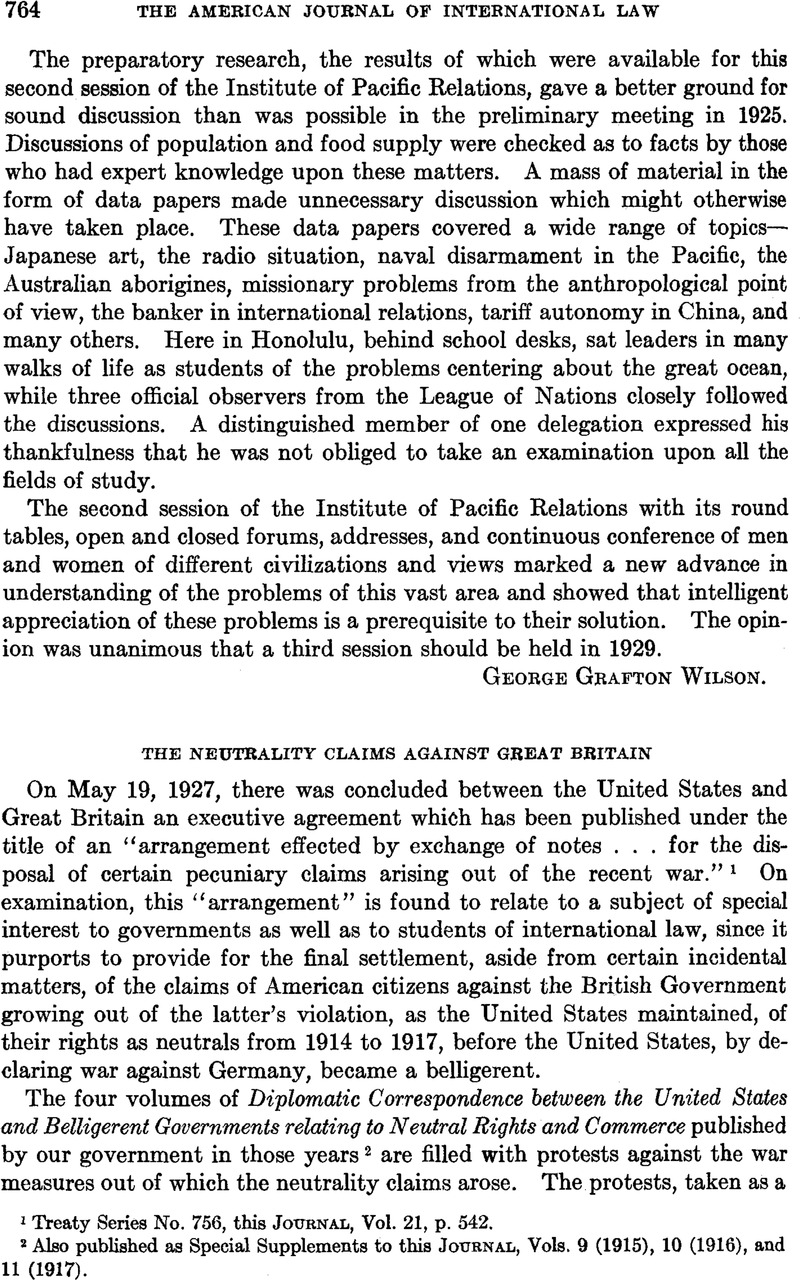No CrossRef data available.
Published online by Cambridge University Press: 04 May 2017

1 Treaty Series No. 756, this Journal , Vol. 21, p. 542.
2 Also published as Special Supplements to this Journal,Vols. 9 (1915), 10 (1916), and 11 (1917).
3 Printed in this Journal, Vol. 10 (1916), p. 422.
4 Cushing, Adm'r., v. United States (1886), 22 Court of Claims, 1: “Municipal law is not a measure of international responsibility, but it is binding within the jurisdiction of the state upon all its subordinate agents, including the courts. The decree in one of the cases before us, which was appealed to the civil tribunals, shows . . . that questions of treaty or international law were not ruled upon, the court being guided alone by the statutes of France. In the face of precedents of this kind, an appeal was a vain and expensive form, as an affirmation of the judgment below necessarily must follow.” (p. 46.) See also The Peggy (1801),1 Cranch 103, 110; Ship Tom v. United States (1893), 29 Ct. Cl. 68; Ship Governor Bowdoin s. United States (1901), 36 Ct. Cl. 338. Kane's Notes on the Commission under the treaty of July 4,1831, with France, Moore's Arbitrations, 4472; Bark Jones (U. S.) v. Great Britain, treaty of Feb. 8, 1853, Moore's Arbitrations, 3046, 3053.